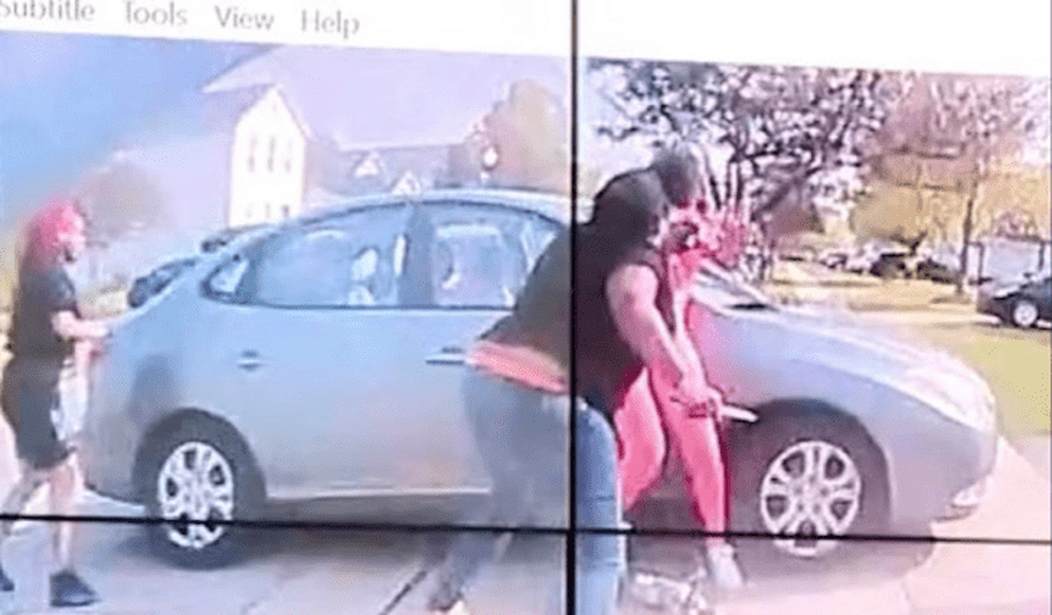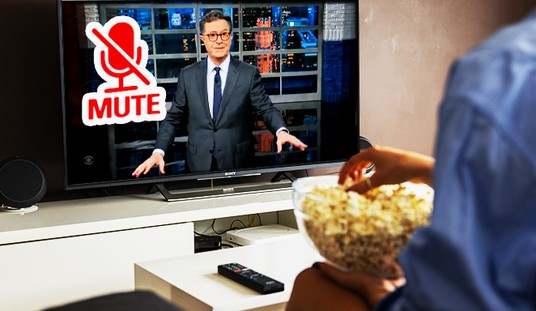Last year, during the marches following the shooting of Breonna Taylor, I went and marched with protesters here in my Los Angeles suburb town. The sign that I carried stated, “Government has a monopoly on oppression.” I found the majority of the people there pleasant and inviting as well as reasonable in the many discussion I had. While many readers here at RedState have already stopped reading, if you’ve made it this far, hang on. I do have a point here.
As I was discussing with one of the protesters, in particular, she demanded that I denounce all police, or that I “wasn’t welcome.” (For the record, several people vehemently disagreed with her demands). Curious, I asked her why she felt that I had to denounce all police, including my neighbor and a close friend with whom I went to high school, despite my knowing that they aren’t bad cops. To her, regardless of the situation, all cops are bad. Every shooting is completely unjustified and every time the police kill someone, it is murder.
It is this sort of absolutism that turns me off in most cases. Whether it is absolutism in describing a group (i.e. all Donald Trump supporters are racist) or absolutism describing a movement (i.e. all BLM is Marxist), I usually try to avoid it. Certainly, describing a group or entities’ goals as such is often hyperbolic, but the vast majority of individual people are good and generous. For instance, when it comes to the police and the all-too-frequent police shooting, there are good police officers and there are justified shootings and killings.
If you’re here looking for a defense of Derek Chauvin, you’re not going to find one. What Officer Chavin did was outside of any acceptable practices for a police officer. The only issue I took with the verdict yesterday is whether or not his actions rose to the level of second-degree murder. I could see why some may feel that it did rise to that level, but in a world of reasonable doubt, I do question it. Short of that (or in spite of, you choose), Derek Chauvin got his just desserts.
However, I have had my issues with certain shootings being labeled with the same label as Derek Chauvin or others who have stepped outside of their protocols to commit acts of violence against people. For instance, I believe that the actions taken by police against Breonna Taylor amount to manslaughter. Why may you ask? Simply because a police department raiding a home in the middle of the night to make an unannounced (or at the very least poorly announced) entry to a home, which at the very most, housed a person who *may* have been suspected of drug dealing, is in itself, irresponsible. In the case of Eric Garner, he was choked out by an NYPD officer for selling loose cigarettes.
Yet, when you include a shooting like Rashard Brooks in the list of unjustified killings, you lose me. If you remember, Brooks was contacted by police when he passed out in the drive-thru lane at Wendy’s. Upon police contact, they determined that Brooks had been driving under the influence and attempted to place him under arrest. Brooks responded by wrestling with officers, somehow prying one of their tasers away from them. Brooks then attempted to flee, but during that retreat, turned and pointed the taser at one of the officers. That officer returned fire, shooting and killing Brooks. Brooks’ mistake wasn’t necessarily just fighting with an officer making a lawful stop or even running away. Both obviously are a serious issue. Brooks’ fatal mistake was pointing a weapon, lethal or not, at an officer. Even the case of Jacob Blake, who was suspected of a domestic violence incident, was a justified but tragic event. Blake, who was in violation of the terms of a restraining order, attempted to steal his ex-girlfriend’s car with three children in the back seat. When officers arrived on the scene, they made multiple attempts to subdue Blake, who was able to lunge for the front seat of the vehicle. The officer immediately behind Blake saw him pull out a knife and opened fire, shooting Blake 4 times. Blake survived, but likely will face a degree of paralysis the rest of his life.
In Chicago, the tragic shooting of 13-year-old Adam Toledo immediately drew suspicion from me, after initial reports stated that Toledo was unarmed with his hands up. Certainly, at the moment that he was shot, Toledo was no longer armed, but 0.8 seconds previously, he clearly was. In the split second that followed, Toledo tossed the weapon behind a nearby wall and turned quickly back to the arriving officer and raised his hands. Officers, believing Toledo was still armed, fired when they believed that Toledo was raising a weapon at them.
The most recent outrage is over the shooting of 16-year-old Ma’Khia Bryant in Columbus, Ohio has reached a new level of cognitive dissonance. The shooting occurred after officers arrived at a scene of a fight between several young girls. Body camera footage clearly shows Bryant attempting to stab another girl with a knife in the moments immediately before the shooting. Complaints arose from the fact that the officer did not order her to drop the knife before shooting, but in that split second of him issuing that order, the other girl would have likely ended up stabbed at least once. The officer potentially saved her life, unfortunately having to kill another girl in the process.
It doesn’t mean that these cases are not tragic. They absolutely are. What it does mean is that equating all police violence as unjustified, is in itself, unjustified. In all of the above cases, the person shot or killed by police was acting in a manner in which they were an immediate threat to another person. Rashard Brooks could have killed someone while driving under the influence or injured or killed a police officer with that taser. Police couldn’t just “let him go” and they had every right to defend themselves once he posed an imminent threat. Jacob Blake was in violation of a restraining order and was threatening to kidnap his children in the back of the car. Police could not have just “let him go” and leave with the children, and they were perfectly in their right to defend themselves against the violent threat that Blake posed to them. Police perceived that Adam Toledo was an immediate threat to them as they had seen him in possession of a firearm just a fraction of a second before he quickly raised his arms. Ma’Khia Byrant was about to stab someone else.
This brings me to this point: BOTH sides of the aisle need to apply some critical thinking when it comes to the abuse of police power and actions of police violence. Conservatives need to stop looking for the “reason” a cop shot someone, especially when those reasons show they didn’t pose an immediate threat to anyone. Talking about George Floyd’s record or drug use is completely irrelevant. Talking about Eric Garner’s weight or heart condition is completely irrelevant. Liberals need to stop assuming that every cop is unjustly acting in violence anytime there is a shooting. If someone poses an immediate threat to someone else, they should be stopped by any means necessary.
Analyzing these issues requires a bit of nuance. It requires critical thought and investigation. Simply accepting any one person’s version of events is not the sole means to judge the event. Oftentimes, there will be body cam footage or cell phone footage of the event. In the case of both Eric Garner and George Floyd, the video showed us the brutality and callousness with which the officers acted. Yet, in the other cases, video showed us the events in a light that we could agree, required immediate and instant action.
More thought, less emotion. It is what we all need to focus on more.













